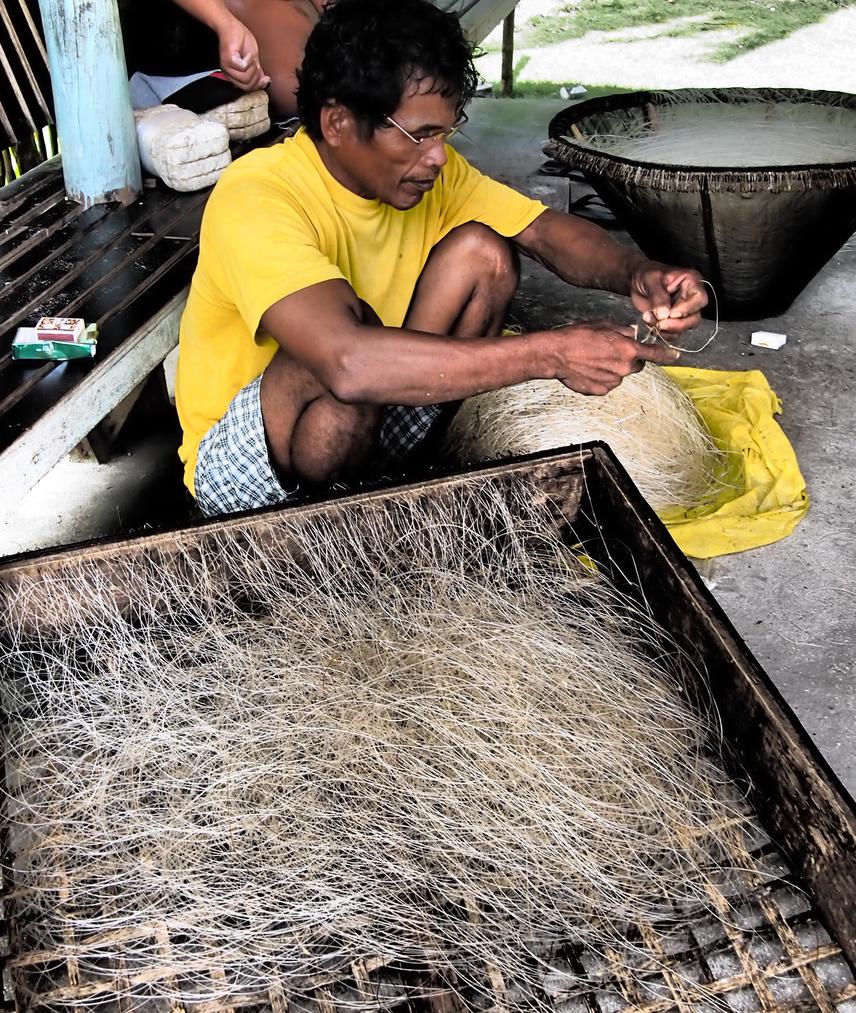Vera Horigue
The aims of the project are to assess management effectiveness of MPA networks and to evaluate and understand how the relationships of various sectors (particularly that of the local governments and the communities involved) affect management effectiveness.

Fisherman preparing hook and lines.
The Philippines is heavily cited for its high biodiversity, human resource dependence, and marine protected area and coastal management initiatives. Several institutions in the country have initiated the establishment of MPA networks to address international and national conservation and fisheries management commitments. However, establishment and management of MPA networks are difficult to achieve since there is a lack of a large-scale and regional perspective. Moreover, the government system in the Philippines is decentralised, planning for and management of coastal resource use is highly localized.
To address these impediments, neighbouring local governments can forge partnerships in order to establish and manage MPA networks. This research project will look into 1) evaluating management effectiveness of MPA networks; and 2) evaluating the relationships of various sectors (particularly that of the local governments and the communities involved). The outcomes of this research will provide detailed information on the dynamics of collaborative MPA initiatives of local governments and communities. It will be able to show what qualities of these partnerships are essential for good governance of natural resources. It will provide local governments (other than those who are evaluated in this study) lessons on how to improve governance and their relationships with their neighbouring local governments.
My research project will be able to document good management and governance practices. It will also be able to determine how management and governance is affected by stakeholder differences particularly that of the local governments and the community members (usually fisher representatives) involved in MPA and coastal management. My project will look into how conflict resolution is achieved, how different parties compromise and how to increase buy-in into ideas in order for MPA initiatives to become more accepted and successful. The methods used for this project, particularly that of the MPA network management effectiveness assessment can be used further for regular monitoring and evaluation. This can enable MPA managers and other stakeholders to track the progress of their MPAs and see if the management initiatives in place are effective and can be sustainable.